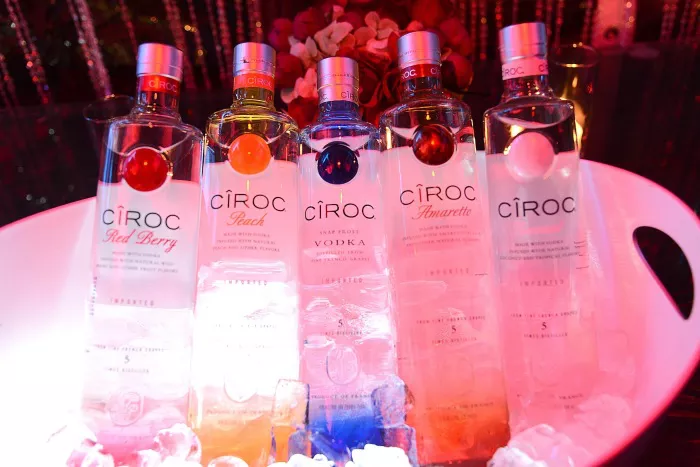When it comes to refreshing beverages, the debate between a classic mojito and a mocktail often stirs up conversations among enthusiasts. Each drink has its own merits, catering to different preferences and occasions. Let’s delve into the characteristics, flavors, and cultural significance of both the mojito and the mocktail to determine which might be considered the superior choice.
The Mojito: A Classic Cuban Creation
Originating in Cuba, the mojito has earned its status as a timeless classic in the world of cocktails. Its history dates back to the 16th century when Sir Francis Drake and his crew discovered the Cuban cocktail “El Draque,” which eventually evolved into the mojito we know today. This concoction typically consists of white rum, sugar, lime juice, soda water, and mint, served over ice.
One of the key attractions of the mojito is its versatility. The combination of rum, lime, and mint creates a refreshing and invigorating flavor profile that appeals to a wide range of palates. The sweetness from the sugar balances the tartness of the lime, while the mint provides a refreshing herbal note that lingers on the palate. The addition of soda water adds a fizzy effervescence, enhancing the overall drinking experience.
For those seeking an alcoholic beverage with a kick, the mojito undoubtedly delivers. The rum base provides a subtle warmth and complexity that elevates the drink, making it a popular choice for cocktail enthusiasts and partygoers alike. Its vibrant green hue and garnish of fresh mint leaves also make it visually appealing, adding to its allure as a quintessential summer drink.
Despite its popularity, the mojito does have its drawbacks. For individuals who prefer lighter or less sweet cocktails, the mojito’s sugar content may be overpowering. Additionally, the presence of alcohol may not be suitable for everyone, particularly those who are abstaining or have dietary restrictions.
The Mocktail: A Non-Alcoholic Alternative
In recent years, mocktails have surged in popularity as consumers increasingly seek healthier and alcohol-free options. A mocktail is essentially a non-alcoholic cocktail, crafted using a combination of fruit juices, syrups, herbs, and other non-alcoholic ingredients to mimic the flavors and complexity of traditional cocktails.
For individuals looking to enjoy the flavors of a mojito without the alcohol content, a mocktail version offers a compelling alternative. Mocktail variations of the mojito often feature ingredients such as lime juice, mint leaves, simple syrup, and soda water, creating a refreshing and flavorful beverage that closely resembles the original cocktail.
One of the primary advantages of mocktails is their inclusivity. By removing the alcohol content, mocktails cater to a broader audience, including designated drivers, pregnant women, and individuals who choose not to consume alcohol for personal or religious reasons. This makes mocktails an ideal option for social gatherings and events where accommodating diverse preferences is essential.
Furthermore, mocktails offer a healthier alternative to traditional cocktails, as they typically contain fewer calories and less sugar. By using fresh fruit juices and natural sweeteners, mocktails provide a guilt-free option for those seeking a refreshing beverage without compromising on taste.
However, some argue that mocktails lack the depth and complexity of their alcoholic counterparts. Without the addition of spirits such as rum, vodka, or gin, mocktails may fall short in terms of flavor intensity and mouthfeel. Additionally, the absence of alcohol may detract from the overall experience for individuals who enjoy the sensory aspects of drinking, such as the warming sensation of alcohol or the social rituals associated with cocktail culture.
Comparing the Two: Taste, Versatility, and Enjoyment
When considering which is better between a mojito and a mocktail, it ultimately comes down to personal preferences and the specific context in which the drink will be consumed. Both options offer distinct advantages and cater to different needs and occasions.
In terms of taste, the mojito excels with its bold flavors and refreshing qualities. The combination of rum, lime, mint, and soda water creates a harmonious blend of sweet, tart, and herbal notes that is difficult to replicate. For those who enjoy the unique taste of a classic cocktail and appreciate the nuances of alcoholic beverages, the mojito may reign supreme.
On the other hand, mocktails offer a lighter and more accessible option for those looking to enjoy a refreshing beverage without the effects of alcohol. Mocktail variations of the mojito can deliver similar flavor profiles using non-alcoholic ingredients, making them an excellent choice for individuals who prioritize health, inclusivity, or personal preferences.
In terms of versatility, both the mojito and mocktail offer endless possibilities for experimentation and customization. While the mojito lends itself to various adaptations using different types of rum or additional flavorings, mocktails can be crafted using a wide range of fruits, herbs, and syrups to create unique and innovative combinations.
Ultimately
The question of which is better, a mojito or a mocktail, is subjective and depends on individual preferences, dietary restrictions, and the specific context in which the drink will be enjoyed. Whether sipping a classic mojito on a sunny patio or indulging in a refreshing mocktail at a social gathering, both options offer distinct pleasures and contribute to the vibrant tapestry of cocktail culture.


